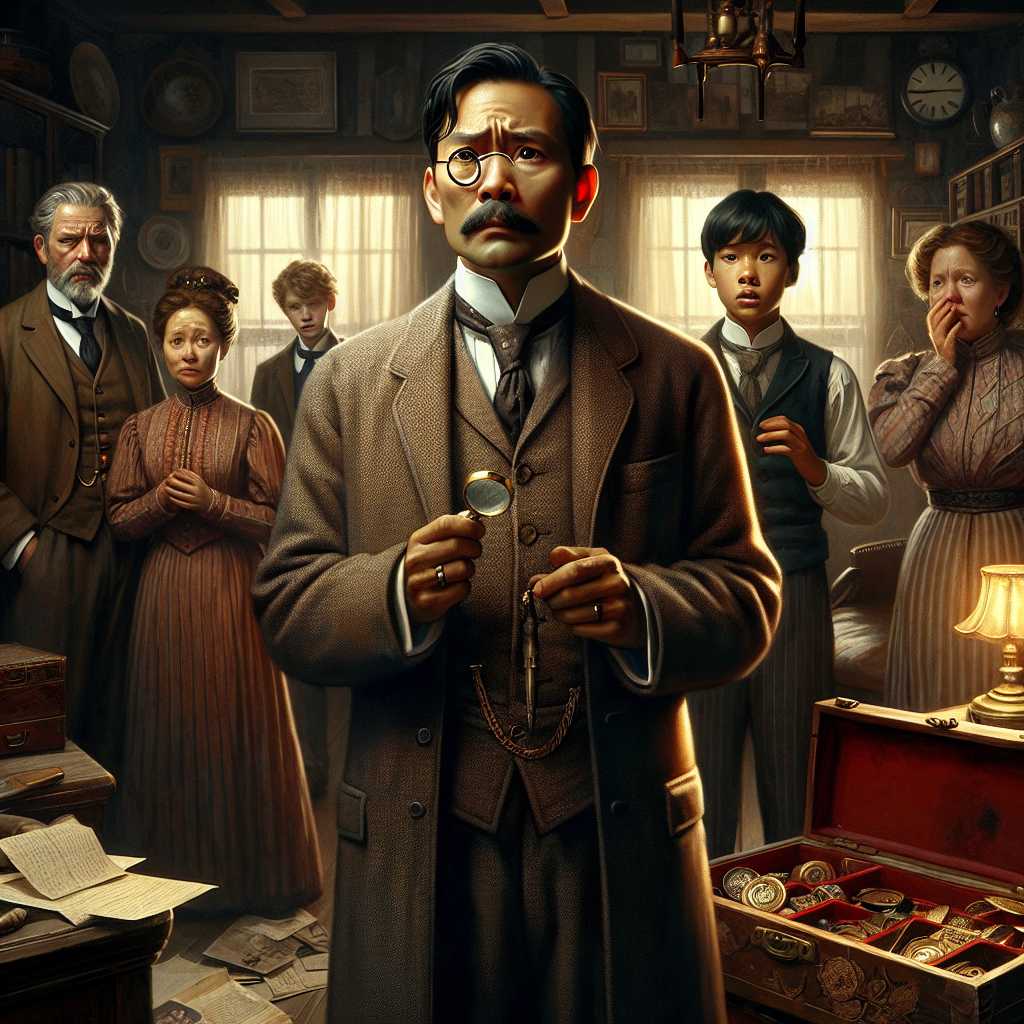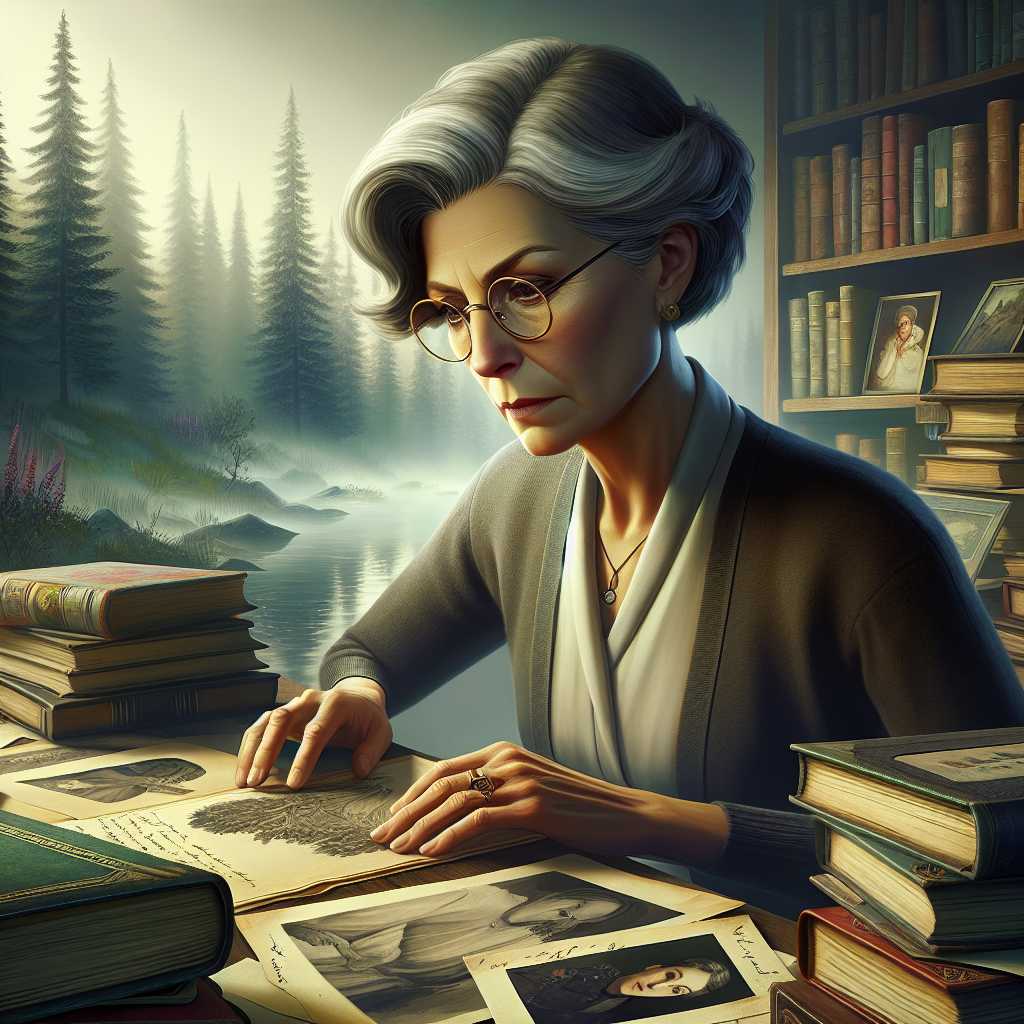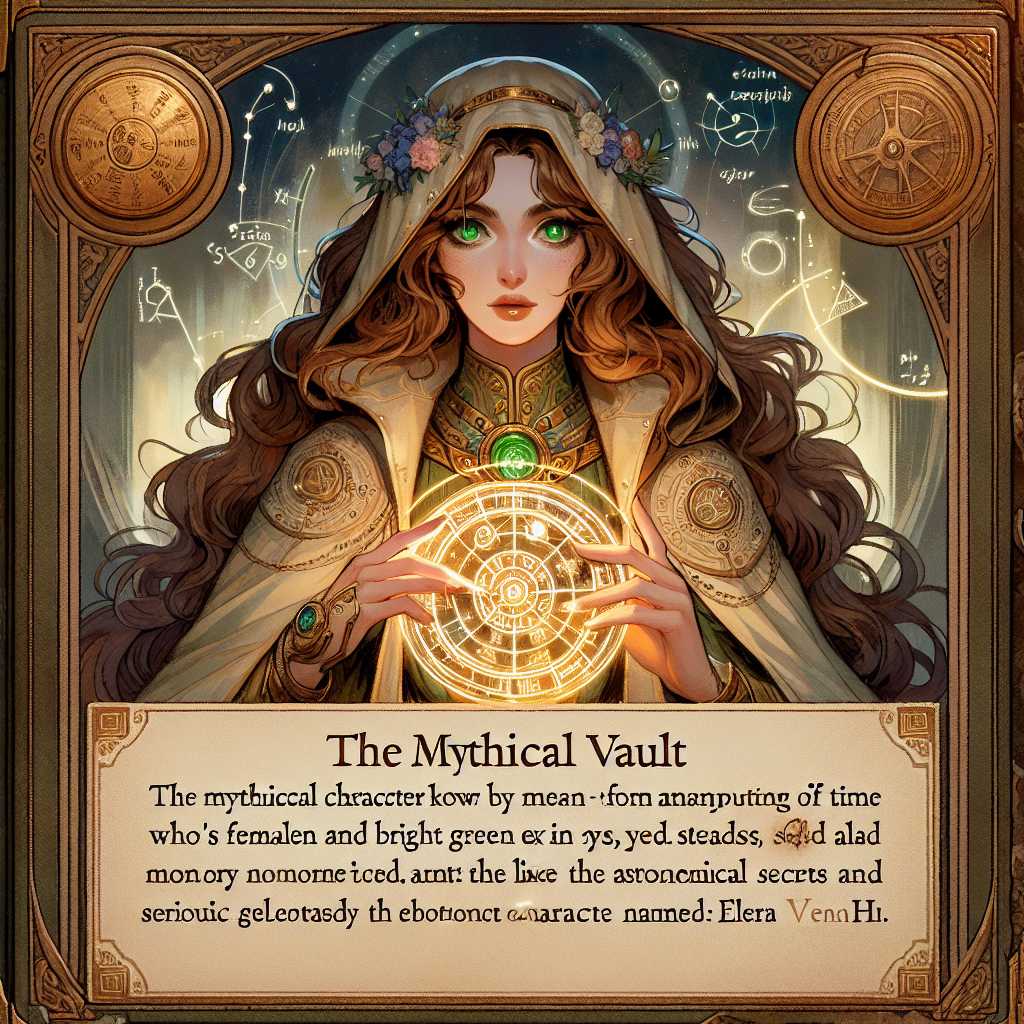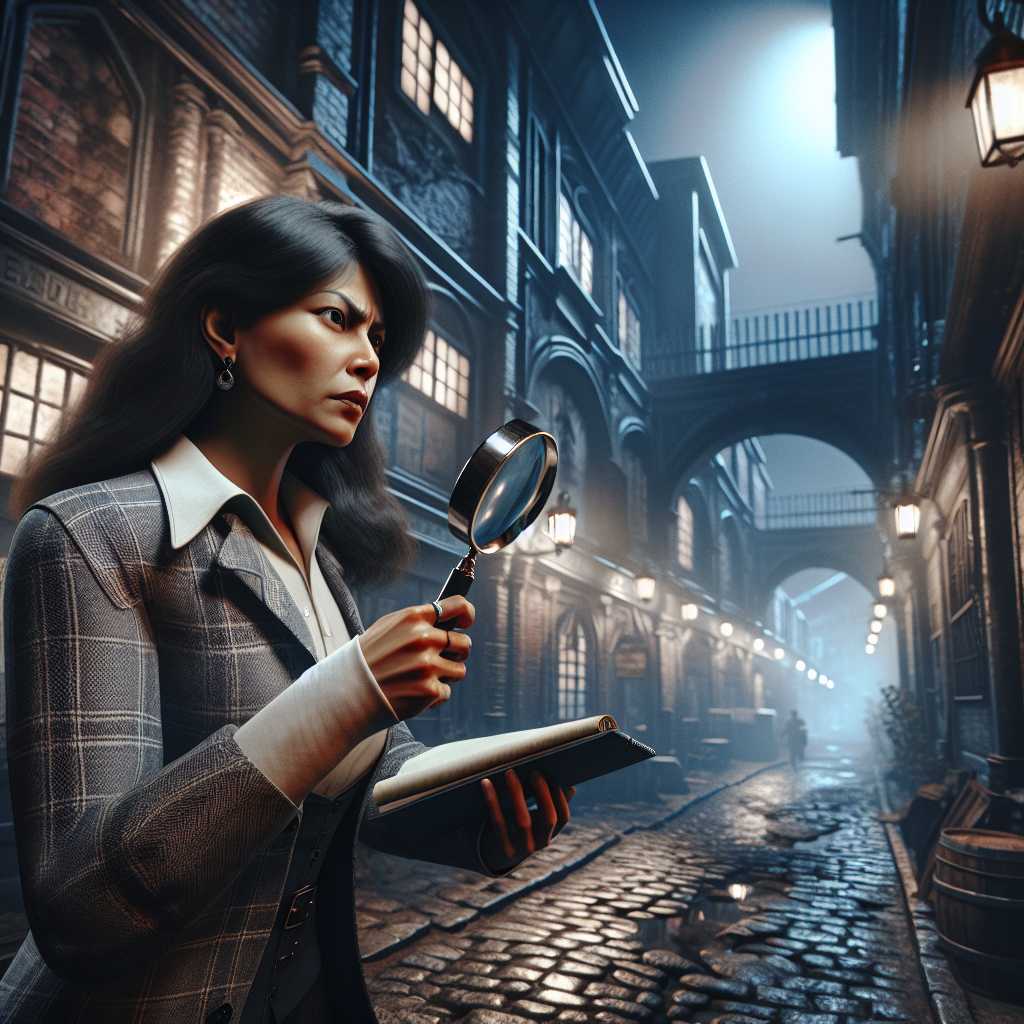
In the muted glow of the gaslamp, which cast uncertain shadows upon the cobblestone streets of Victorian London, there emerged a tale of cunning, deceit, and a most perplexing crime. It was an epoch of fog and half-whispered rumors; the perfect breeding ground for the deeds of the amoral and the desperate. It was here, amidst the swirling mists, that our story begins.
It was on a dreary, rain-soaked evening when Inspector Arthur Redfield, a man whose reputation for solving the unfathomable was spoken of in reverent tones at Scotland Yard, was summoned to the opulent mansion of the esteemed, and now apparently endangered, Lady Elizabeth Wentworth. Lady Wentworth, a widow of considerable fortune and discerning taste, had discovered something that chilled her to the very marrow—her prized painting, The Lamentation of the Swans, had vanished from its frame without a trace.
Upon arrival, Inspector Redfield adjusted his trusty homburg hat and surveyed the great hall with keen hazel eyes, shrouded beneath heavy brows.
"A conundrum indeed, Lady Wentworth," he mused aloud. "A painting of such magnitude and notoriety spirited away whilst under the constant vigil of your household staff—quite remarkable."
The impassioned lady nodded vigorously, her pearls clattering like Morse code dispatching an urgent plea. "Indeed, Inspector! It is a travesty, for that painting is more than art; it is my soul rendered in oils, a final gift from my late, dear husband."
Her words fell heavy in the room, as though they were as tangible as the furnishings that adorned her grand home. Redfield, meticulously attuned to the shades of human emotion, noted a tremor in her voice—a trill of something unspoken. Grief, or fear, perhaps more.
"If I may be so bold," began Redfield, "could you enlighten me as to who might possess knowledge of any secret passages or chambers within these walls? Such a thoroughfare would indeed offer a means unnoticed egress."
Silently cursing her oversight, Lady Wentworth conceded, "There are a few who are aware. Myself, naturally, my butler, Mr. Graves—whose family has served mine for generations—and my niece and companion, Miss Abigail Fortescue."
With a nod, the Inspector called for the attendance of Mr. Graves and Miss Fortescue. When they entered, Redfield regarded them sharply, taking in their postures, their gazes that flickered and then held firm, the barely discernible tension that seemed to hum between them like a drawn bowstring.
"A painting has gone missing," Redfield declared, his voice a map of certainty upon which he charted his course, "and I believe the culprit to be someone well acquainted with this house."
Miss Fortescue, a sprightly young woman with a look of both intelligence and impudence about her, stepped forward. Her voice, tinged with a defiance that bordered on insolence, betrayed none of the expected deference. "Surely, sir, you aren't suggesting that one of us has committed such a heinous act."
Her challenge hung in the air, and Redfield considered it with the patience of a chess master contemplating his next move.
"It is not a question of want, Miss Fortescue, but rather of must. And I must consider every possibility, no matter how it may wound," he retorted.
The inquiry proceeded, with Redfield slowly tightening the net. He examined the frame from which the painting had been so expertly excised, scrutinized the logs of staff comings and goings, and cast a discerning eye over every inch of the mansion, from cellar to attic. Yet it was in the reflection of an ornate looking glass that Redfield caught the most provocative of clues.
Seeing the Inspector's sudden attention fix upon it, Miss Fortescue could not help but comment with a cautious curiosity, "An admirer of mirrors, Inspector?"
Redfield's response was terse, but his eyes revealed the blueprint of a revelation forming. "Mirrors often tell us more than we see at first glance."
It was as the dusk surrendered to the onslaught of night that Inspector Redfield summoned them once again to the great hall. Lady Wentworth, Mr. Graves, and Miss Fortescue took their places like actors upon a stage, eager for the final curtain to reveal the truth of the drama.
"I have traversed the depths of this grand house and the heights of the predicament at hand,” began Redfield. “It is now clear to me that the perpetrator of this theft knew not only the layout of this estate but also had intimate knowledge of the daily rhythms and routines."
The tension was palpable, a living thing that fed upon the silent suspicions that danced between the three.
"Allow me to disavow you of the suspense," Redfield continued. "The Lamentation of the Swans was not taken by hands seeking financial enrichment. No, it was a crime of passion and desperation." He paused for a breath that seemed to hold the weight of the night. "The painting was cut from its frame by none other than Miss Abigail Fortescue."
All eyes turned to the young woman, whose composure cracked like thin ice upon a wintry pond. Confusion and betrayal painted Lady Wentworth's face, while Mr. Graves remained stoic, as immovable as stone.
"Lies! All lies!" spat Miss Fortescue, her voice now tinged with panic. "I loved my uncle dearly, and I cherished that painting as he did!"
"Indeed, you did love your uncle," Redfield agreed. "So much so that you suffered greatly at the thought of Lady Wentworth, whom you believed to be more interested in her social engagements than in the memory of your late uncle, potentially dealing away the painting for financial gain. Your intentions may have been to safeguard the painting, but theft is theft, nonetheless."
Clarity dawned upon Lady Wentworth's features as the fog of confusion lifted. "Abigail, is this true?" she implored, her voice softening with a mix of pain and understanding.
With tears streaming down her face, Miss Fortescue nodded, surrendering to her fate. "Yes. I couldn't bear the thought of it being sold, circulated among the uncaring and the prying. It was the last memory of him I had."
And so, the mystery of the missing painting was solved, not by the pursuit of wealth, but by the complexities of the human heart. Inspector Redfield took no pleasure in the resolution; such matters seldom called for it. With the wisdom of the weary, he observed, "Sometimes we seek to preserve the past so fervently that we destroy our future in the process."
As Lady Wentworth and her niece exchanged a silence that spoke volumes, Inspector Redfield turned to Mr. Graves, who had yet to utter a single word. "I trust you'll see to it that Miss Fortescue receives the proper counsel?" he inquired.
The butler's solemn nod was Redfield's cue to take his leave. He donned his hat, stepping back out into the night that seemed a shade less intimidating under the steady beam of his gaslamp. And though the streets were still swathed in the inscrutable fogs of London, for Inspector Arthur Redfield, clarity always resided within the heart of the darkness.










